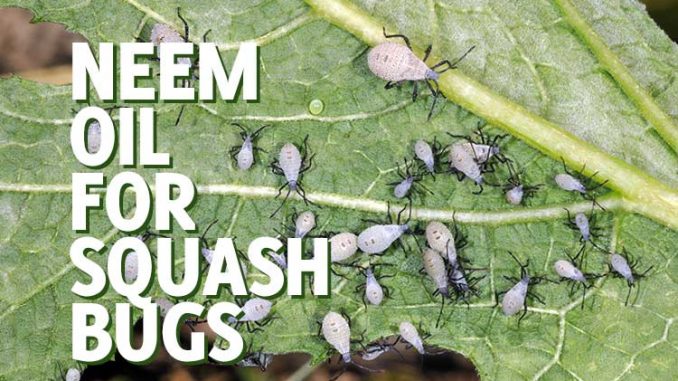
Squash bugs (Anasa tristis) are a terrible pest to get rid of once they have taken hold. These flattened insects of squash death reach a length of over a half inch and often sport a row of gold or brown spots along the abdomen of their otherwise disgusting greyish bodies. Often they exude an unfriendly smell when bothered and worse they carry and transmit a nasty bacteria known as the cucurbit yellow vine disease. Thankfully using neem oil for squash bugs can be effective in controlling infestations.
Knowing Your Enemy (Identifying the Squash Bug)
Did I mention the UNFRIENDLY SMELL? These things love to bug-fart all over you and your plants when they are disturbed. The smell is similar to a traditional stink bug – if stinkbugs mixed their smells together in a tiny cloud all over you.
Sucking on the sap of the host plant (typically the squash plant you were excited to bear delicious fruit for your family) these horrible little critters can easily decimate an entire crop once they get established. As such, catching an infestation before it takes hold is the best way to deal with these particularly ugly insects.
That is all well and good, but if you are anything like me then you didn’t catch them UNTIL they were established and eating all the delicious squash sap that should be feeding your fruits. In that case, you may be wondering if neem oil for squash bugs is of any use.
Neem oil is a terrific natural pesticide that is considered organic yet destroys a large number of soft-bodied insects. Even the insects it doesn’t kill outright it tends to disrupt their eating, metabolism, and reproduction, which essentially does the same thing as killing them…in a slower, more rewarding way.
I have a bit of personal history with these insanely unpleasant ‘leaf-footed’ bugs; I apologize in advance if I come across a bit harsh.
Disclaimer for Using Neem Oil on Squash Bugs:
Always keep in mind that 100% neem oil needs to be mixed before applying to plants. There are lots of premixed neem sprays, but you are wasting your money by not mixing your own. Also be aware that neem oil can kill insects that are beneficial to your garden.
Adult Squash Bugs
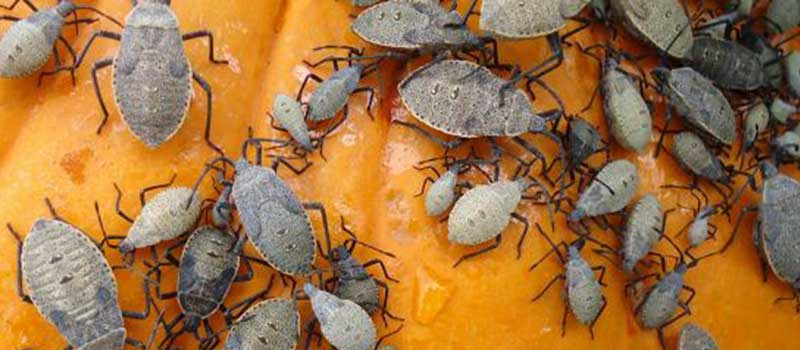
Neem oil for adult squash bugs can be effective as long as you take the time to actually cover the whole bug with the oil mixture. The oil disrupts the reproduction and ability to metabolize food. Any eggs these bugs get a chance to lay tend to be sterile. They may try to escape, but death will come to them and their clan shortly.
Adolescent (Mid-Instar Nymphs) Squash Bugs
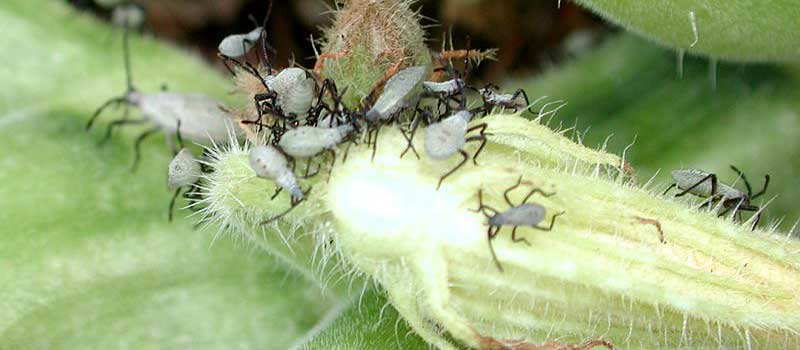
Since squash bugs have five developmental (instar) stages they have several different exoskeletons along the way. Thankfully the magic of neem oil also has many tricks. At the mid, to late stages of these pumpkin loving sap-suckers lives, they are easily killed by a proper neem oil solution that contains a decent natural soap. Shortly after being sprayed with a fine misted garden sprayer their bodies will be covered and they essentially suffocate.
Juvenile (Early-Instar Nymphs) Squash Bugs
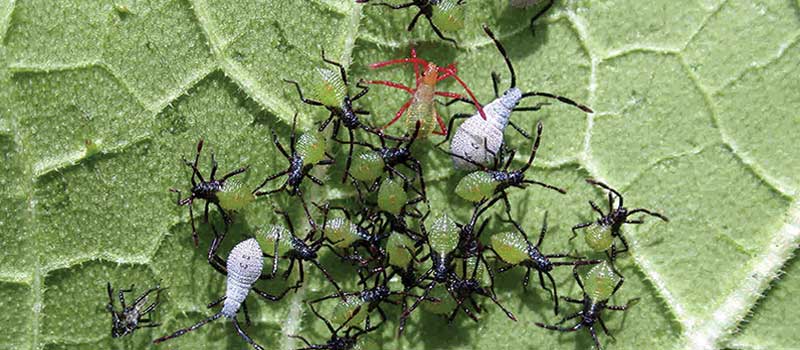
These squishy little buggers are easily taken out with a light neem spray. A small amount of neem oil will eat their tiny soft bodies from the outside making them fall from the host plant (the squash you are here to defend) and allowing them to die quickly on the ground. Exactly what they deserve, those are OUR SQUASHES.
Squash Bug Eggs
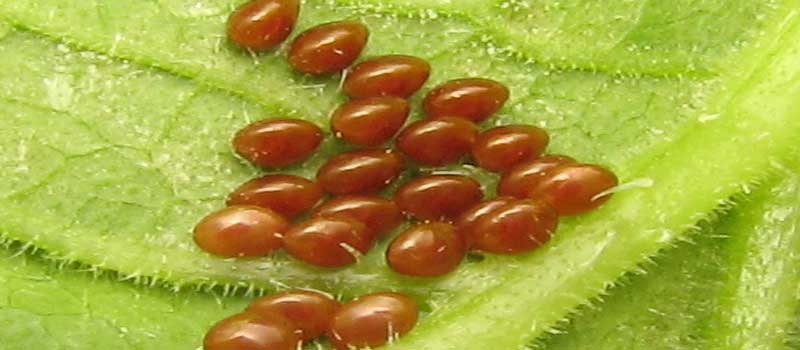
Neem oil for squash bug eggs is a bit more tricky of a subject. In my experience, they are pretty robust as far as repugnant insect eggs go. If you have a good mixture of soap and neem then it will coat the egg long enough to kill the larvae as soon as it hatches. Really, the easiest way to deal with the eggs is by wiping them off.
In Closing
These bugs, which have to be a brain-child of Stephen King, are near impossible to keep away from your garden at times, but neem oil for the squash bugs can control and even eradicate an infestation and hopefully get at least a squash or two as a war prize.
Do you have better ways of dealing with the fearsome squash bug? Let me know in the comments!

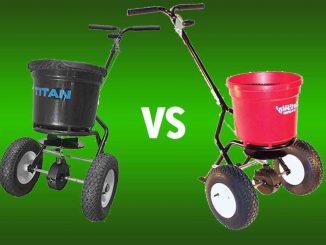
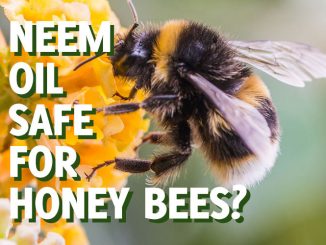
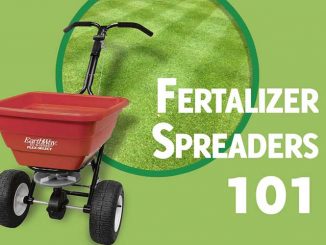
I don’t know if it’s better, but it sure is satisfying! We have 3 foot high raised beds made from old farm grain bins. We cut the leaves below the fruit and inspect morning and evening. Our fun is using a small hand torch to spot treat the eggs on the leaves and fry the nymphs and adults alive! Non of this seems to harm the plants in the long run. Leaf damage is minor and the popping of the eggs is a wonderful sound!
I hates me a squash bug and a fire ant!